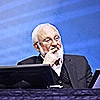Audio Version Of The Blog – 8/21/19
Listen to an Audio Version of the Blog
Download:MP3 Audio

Listen to an Audio Version of the Blog
Download:MP3 Audio
 Theory of the Governance of the World: Nature
Theory of the Governance of the World: Nature
Comment: From the point of view of Kabbalah, the Creator and nature are one and the same. Baal HaSulam in his article “The Peace” explains five theories of the governance of the world, how throughout history, humanity was changing its view in relation to the Creator.
The first theory is “Nature,” according to which,
“…they came to assume that the Creator, who created all these, who watches mightily over His reality lest any of it be cancelled, is mindless and senseless.
“… And for that reason, they believe that there is no one to be angry at, to pray to, or to justify oneself to.”
My Comment: This is a very good theory. In fact, we see that this is so.
We are before the immutable law of nature and we need to study it well. By studying it, we begin to understand that everything depends on our compliance with this law, not on how it changes. After all, it changes with respect to us in order to change us. That’s all!
It means that the law is immutable. Nature always moves to connection in order to manifest itself with regard to us in ever greater integral connection.
We cannot talk about nature itself. We can only talk about our perception of it because we do not know what is happening outside of our five senses. It is like a newborn baby who does not see, hear, or feel. Then gradually the baby begins to show its senses, to engage with the world.
We live in some kind of space, and this space is also our sensation. We perceive it with our five senses; that is, something in us is reflected from it. We do not know what is really happening.
Question: Can we say that everything we see around us is the Creator?
Answer: No. We can call the Creator everything that is behind this: a law, force, thought, and intention.
Question: It is not what I see in my five sensory organs?
Answer: No. I see everything around me is changing. The one who changes everything is called the Creator.
You can call Him, as Baal HaSulam writes, a senseless law or, on the contrary, a law that is full of feelings and intentions, which may or may not change depending on my attitude toward Him.
[249607]
From Kab TV’s “Basics of Kabbalah,” 12/10/18
Related Material:
Nuances Of The Theory Of Duality
The Two Forces Of The Universe
Reconstructing The Seal By The Imprint
 Question: How do we learn to live not in the present?
Question: How do we learn to live not in the present?
Answer: We never live in the present. Even if I say that now I want something, it means that I already want something that might be realized in a future moment. We always exist as if in the future.
How can we learn to live in the future? We should just create it.
The spiritual future is created by a greater connection between us. The stronger it is, the faster we reach the following spiritual states. We need to think about it.
If we mainly deal with this and with all earthly problems only to the extent it is necessary, then we will suddenly feel that from that spiritual state to which we wish to advance, we also provide ourselves with material things because the upper Light will shine upon us in corporeality too.
[250077]
From the Kabbalah Lesson in Russian, 04/28/19
Related Material:
Live Not In The Past, But In Anticipation Of The Future
Should We Live Forever?
Beyond Time, Space And Motion
 From the Preface of Chaim Vital to Shaar Akdamot: “Harvest passed, the end of summer, but deliverance did not come to us. There was no cure for our diseases, no cure for our wounds, for the destruction of our Temple, which today is already 1,504 years old. And hope ran out, the son of David still has not come. But it is said that every generation that does not build the Temple in its days, as if destroys it. And I decided to study and find out why our punishment dragged on, our exile, and salvation has not yet come…”
From the Preface of Chaim Vital to Shaar Akdamot: “Harvest passed, the end of summer, but deliverance did not come to us. There was no cure for our diseases, no cure for our wounds, for the destruction of our Temple, which today is already 1,504 years old. And hope ran out, the son of David still has not come. But it is said that every generation that does not build the Temple in its days, as if destroys it. And I decided to study and find out why our punishment dragged on, our exile, and salvation has not yet come…”
In the time of Abraham, the people of Israel formed as a group of his apprentices. Abraham asked the Creator: “Whereby shall I know that I shall inherit it” [our mission and achieve a common correction]”? [“ (Genesis 15; 8) What did the Creator reply? It is written, “And He said unto Abram: Know of a surety that thy seed shall be a stranger in a land that is not theirs, and shall serve them, and they shall afflict them four hundred years.” (Shamati #86)
Abraham then realized that one needs to join in a huge egoistic desire, which is called “exile.” This was an Egyptian exile, slavery to the Pharaoh, but we are talking about the internal state of this group. Exile was a shattering because the desires of the Egyptians, that is, the reluctance to unite, penetrated between the Jews, between the aspiration to unity (yichud), and estranged them from each other and from the Creator.
In exile, they absorbed all the other people’s egoistic thoughts and intentions and became ready for liberation, for the correction of the desire to enjoy. Therefore, after ten plagues, they were able to leave Egypt.
It was impossible to leave without the plagues because they already liked being in egoism, as we do now. Ten plagues will also come to us. These are blows to Pharaoh, who lives inside each person and all of us together, to help us break away and leave it. The egoistic desire that separates us is called Pharaoh.
When we separate from the desire to enjoy for our own sake, we can move on to the next stage of correction and receive the Torah. We undertake being in mutual guarantee (Arvut) and unity, and want to receive the force that will connect us. Because this power comes, we get a method that contains the reforming light, and begin to use it.
For forty years we correct ourselves to bestow for the sake of bestowal. After that, correction within the desire itself already begins, to receive for the sake of bestowal. The desire to receive for the sake of bestowal is no longer a desert, but a “Land of Israel.” That is, we begin to build ourselves: we build the First Temple, and then the Second. After the destruction of both Temples, one needs to wait until all desires fall and break, and then one can begin to correct them in order.
The process of correction begins from the time of Ari and after. Therefore, in the 16th century, such a high soul as the Ari was revealed in the world that transferred the method of correction to us.
Chaim Vital was a student of the Ari; he wrote down everything that he learned from his teacher and passed these books on to us. He sat and cried that time passed, but there was no correction, the Messiah ben David did not come.
Why did he not come? It was because the people were not ready for it, that is, they did not require correction. According to the rule, “there is no coercion in spirituality,” the upper light cannot come and start correcting us without our desire. We have to initiate it with our prayer, tremendous work and efforts, and reveal the need for correction and good deeds.
That is, we have to try and correct ourselves and be sure that we cannot do this, and then ask for help. As a result of our efforts, we will understand what to ask for. While this is not in place, the Messiah—the light of correction—will not come.
Five hundred years have passed since the time of the Ari, when will the correction come? Baal Shem Tov asked the Messiah when he would finally come. And the Messiah answered: “When my sources spill out,” that is, when the wisdom of Kabbalah is revealed.
This is what we need to do. The light cannot come and begin to correct desires if people do not want correction and do not know why they live. They do not care about the meaning of life; filling themselves with something from morning to evening and from evening to morning is the most important thing to them.
So a hundred and two hundred years pass, and nothing changes, but in the meantime, we are destroying the world. The situation is getting increasingly worse because the light increasingly enters the desire, only we do not feel it. This is called the path of suffering, the natural course of development (Beito). Nevertheless, some corrections occur, but due to blows, for a long time, without the consent of the lower and his request.
We have had the opportunity after the Ari to wake up and finish our correction, even then in the 16th century. We seemed to have missed this chance. The main thing is not to miss it now: to reveal the correction method to the world and implement it.
From the 3rd part of the Daily Kabbalah Lesson 7/30/19, Lesson on the Topic “Tishaa BeAv (Ninth of Av)”
Related Material:
New Life #721 – From Abraham To The Generation Of The Desert
New Life #869 – Abraham’s Method Of Correction
Who Is Rav Isaac Luria (The Ari)?
Question: Do the concepts of “feelings” and “emotions” exist in Kabbalah? In psychology, emotion is a subconscious reaction to a situation. Moreover, such emotions as, say, anger, aggression, irritation, and fear quickly arise and quickly disappear, and feelings (love, friendship, hatred) arise slowly, but also disappear slowly?
Answer: Feelings can be controlled, meaning developed or extinguished. The big difference is in what prevails: the brain (thoughts, mind) over feelings or feelings over thoughts.
If feelings prevail over thoughts, then these are emotions, and if the mind prevails over feelings, then this is already a serious calculation, this is desire with calculation, that is, with intention.
Then I can manage desires, calculating what can be done in order to change my opinion about something or someone, my perception and so on.
Question: Does the Kabbalist work with his feelings or does he work on them?
Answer: A Kabbalist works with feelings, intentions, and desires. He tries to control them through the environment because there is no other way to control them.
If he is locked within himself, he will not change anything. He will simply feel different fluctuations in himself, what happens to his desires, his intentions, but no more.
You can change something within yourself only under the influence of the environment, how much you exalt it in your view, how impressed you become with its opinion, wanting to unite with it, become like it, or be lower or higher than it.
[249472]
From KabTV’s “Basics of Kabbalah,” 12/03/18
Related Material:
Evolution Of Desires, Part 7
Evolution Of Desires, Part 6
Evolution Of Desires, Part 5